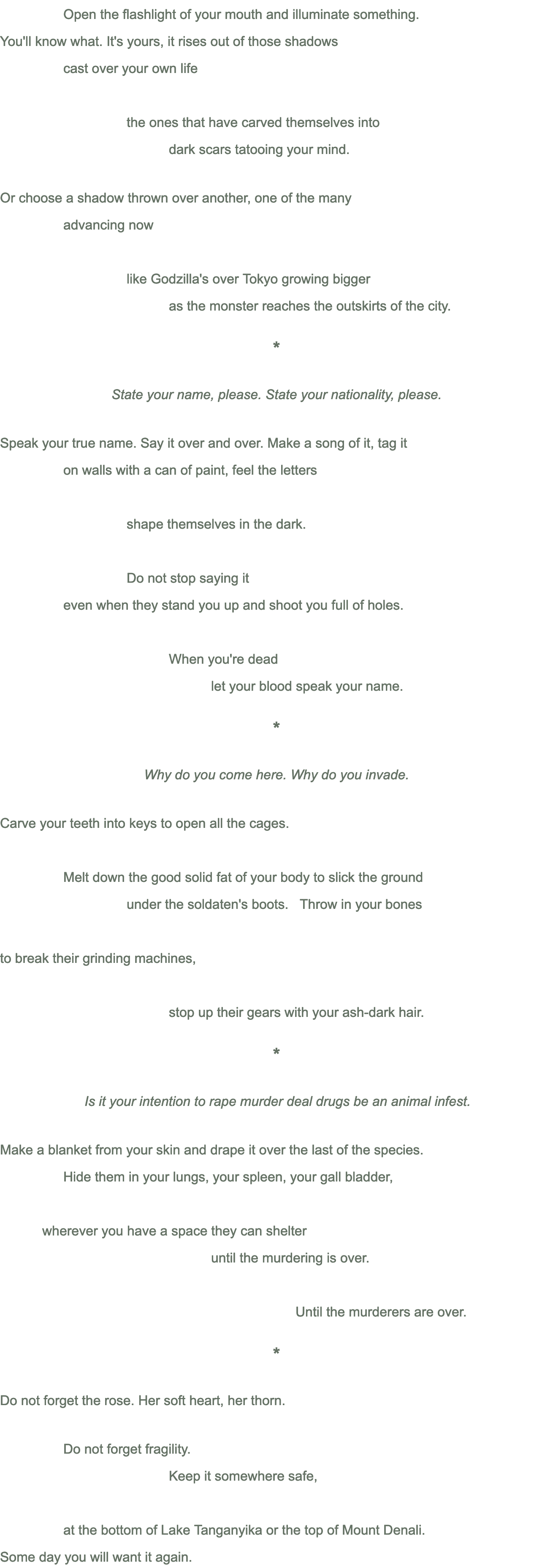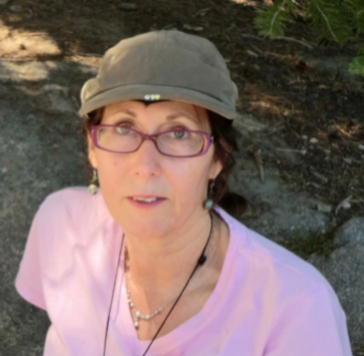Christine Holland Cummings
HOW TO GO ON WHEN IT KEEPS GETTING DARKER

Notes:
What does it mean, to heal?
And how does my poem, a primal scream of protest against the woundings of our time, connect to healing?
“How To Go On When It Keeps Getting Darker” was written last summer, in the Sierra Mountains, during the height of the first round of family separations at the border. Images and recordings of kids crying for their parents, 24-hour news cycle reports of the outrages committed by our government, by my country, the country I’ve always taken for granted as one that holds equality, openness and fairness as sacred, even though it often fails to uphold them — my country now felt like a foreign country, one of “those” places where some groups are othered and tortured and killed by brutal men. It was just the latest, and one of the most horrifying, of the horrors that kept on coming every single day after the election of Trump.
So I was thinking about the children in cages, and the way Trump and his ilk seem to hate our pachamamita, wanting to dig up and burn all the oil on the planet, to befoul the air and flay the earth’s skin for mineral profit in beautiful sanctuaries like the Grand Staircase-Escalante monument, cut in half by presidential decree. About the tears of the people who come here seeking safety and a chance to thrive, who are greeted with cold hostility and bureaucrats who take away their children and send them back to their countries, bereft.
It was hard not to give in to despair.
The poem, which arrived in a rush of dictation the way some poems do, is/was a kind of healing, a directive to myself: this is how you keep going, this is how you fight back. It was my way of refuting the voice of hatred that shows up in italics, the one we hear all around us these days. You have to stand against that voice, even if it means, ultimately, you must sacrifice yourself, your teeth, your skin, your blood — you must resist in whatever way you can. The poem’s final charge, to remember love, tenderness, vulnerability, not to lose them, seems to me the only way we can survive with our humanity intact.
About the Author

Christine Holland Cummings lives in Menlo Park, California with her husband and dog, where she has turned her small suburban plot into a native plant wildlife habitat. Her poems have appeared in Bellowing Ark, Blueline, Hamilton Stone Review, Manzanita Quarterly, The Sand Hill Review, Blue Arc, an anthology of California poets from Tebot Bach Press, and a poetry anthology about loss of companion animals titled Our Last Walk. She dreams of bringing people into connection with the spirits of our plant allies and to manifest this dream she’s begun the work of becoming an herbal healer: studying, growing, meditating, learning to understand the medicine our allies make available to us. Every step she takes on that path leads to more light, more love, more joy.
Return to top